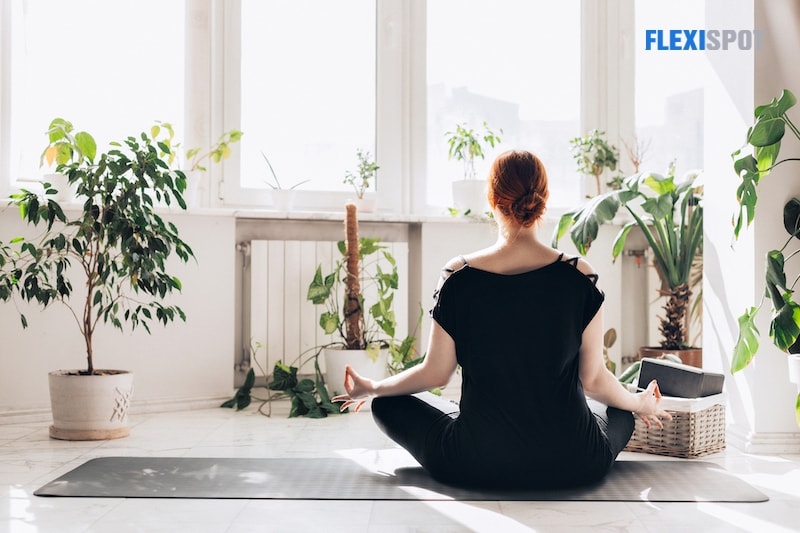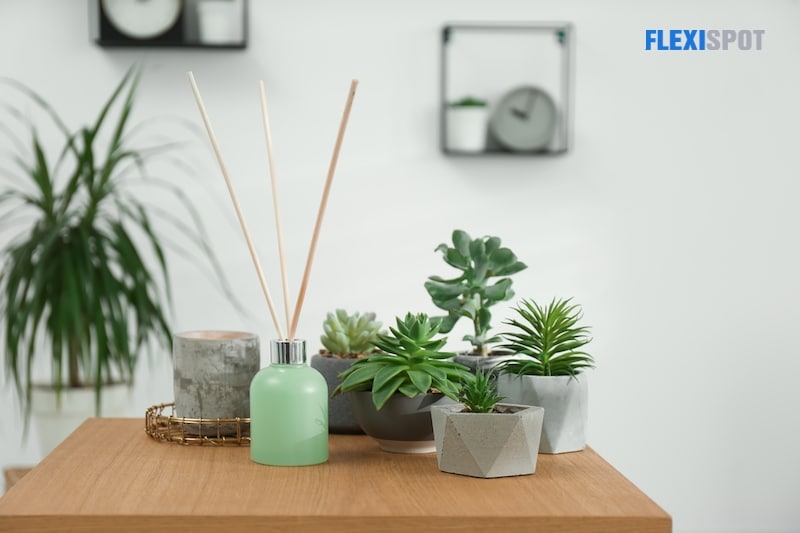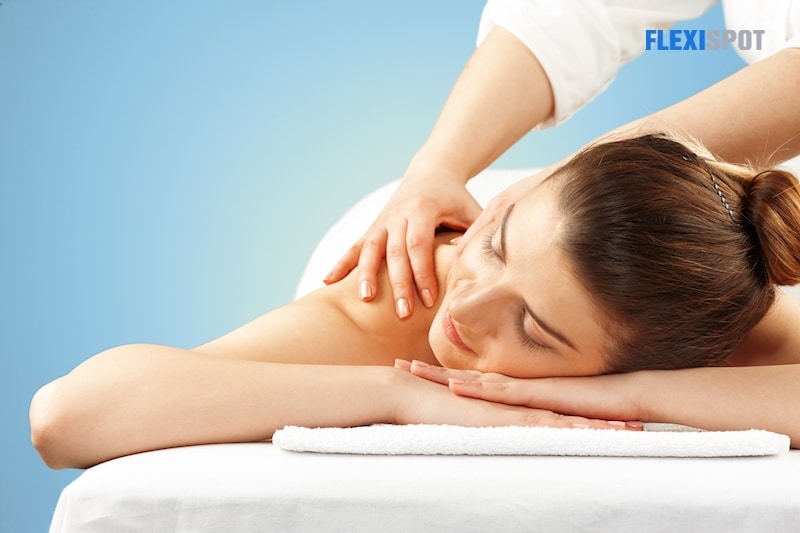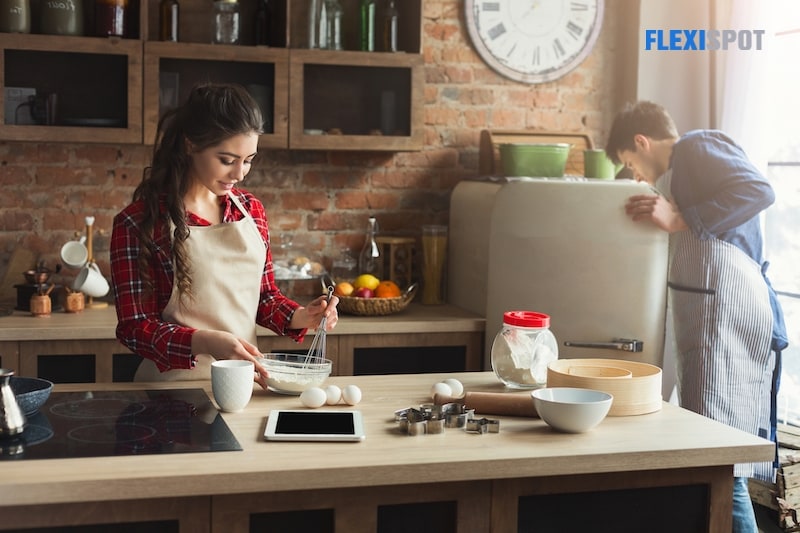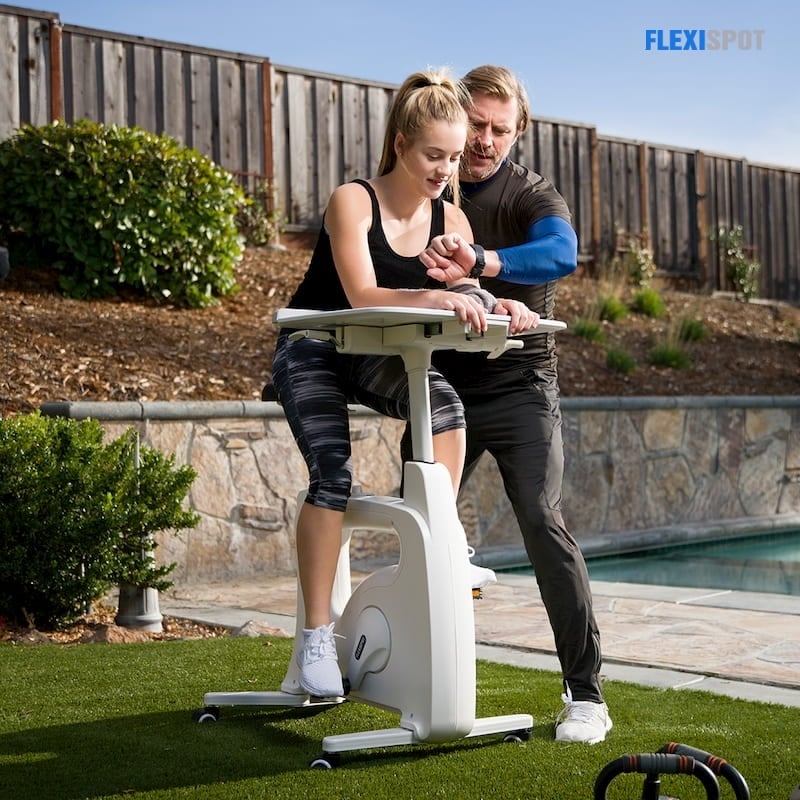Stress manifests differently for different people, but it is usually some rendition of your brain and body snarling in response to everything you're attempting to control. We need to know what we can do to alleviate stress, especially if we're stuck indoors. Because, not to add to your anxiety, both acute and long-term stress can have a severe impact on health and cause us to engage in risky escapism.
Physical symptoms of stress, such as migraines, difficulty sleeping, or digestive problems, may go unnoticed at first. Perhaps you're just feeling a little more antsy than usual, or you're having trouble paying attention. Nevertheless, if these negative impacts are prolonged, they can influence performance by lowering your productivity. For ambitious people, such as business owners, this can impact their businesses and their personal lives, adding to their stress. Without further ado, here are some stress-reducing activities that you can do even if you can't get outside.
BREATHE
According to one study, deep breathing is among the most beneficial ways to deal with tension and stress-related situations. It effectively turns off your body's temptation toward fight-or-flight reaction by triggering the calming effect of the parasympathetic nervous system, offering an immediate effect on anxiety, mood, and conscientiousness. Even more intriguing, the study discovered that these impacts were even more significant three months later.
Try breathing exercises to alleviate stress. When you inhale, your heart beats faster, while when you exhale, it decreases. So, when you're agitated, try slowing your breath and exhaling more slowly.
STRETCH
There has been a lot of research done on the contribution of yoga in relieving stress, and even taking 10 minutes to breathe and stretch in any way that feels excellent to you can be highly relaxing. If you want to practice yoga without leaving your house, you can use apps to help you.
SOMETHING TACTILE
Get your mind out of the way and into your senses. Your sense of touch can help you return to the present moment. It draws you back into your body, whether it's bursting plastic bubble wrap, arranging your change jar, or making homemade slime with the kids. Using all of your senses is a good grounding strategy.
OILS AND CANDLES
Using essential oils or lighting a scented candle could help you feel less stressed and anxious. Some scents are particularly relaxing. Aromatherapy is the use of aromas to control your mood. Several studies have found that aromatherapy can help to reduce stress and improve sleep. Here are a few of the most soothing scents:
Lavender
Rose
Sandalwood
Ylang ylang
Vetiver
Bergamot
Frankincense
Orange or orange blossom
Neroli
Geranium
Roman chamomile
DANCE
Playing your favorite song list and dancing is a good workout, which has long been studied as a way to unwind. It also helps to stimulate the mind and induces feelings of motivation. Dancing to music from a joyful time and place in your life can also trigger positive memories, taking your thoughts off your mental anguish. One note of caution: not everyone is comfy dancing alone, and that's alright. Some people become overwhelmed when they are forced to dance, so do what feels natural to them.
WRITE
Writing things down is one way to deal with stress. While writing down what you're overwhelmed about is one initiative, writing down what you're thankful for is another. By focusing your thoughts on what is favorable in your life, gratitude can help relieve stress and anxiety.
LAUGH
It's tricky to be agitated when you're having a good laugh. It's beneficial for the body, and it can help to ease stress in a variety of ways:
Reducing the stress response.
Soothing your muscles relieves tension.
Laughter could also help your immune function and mood in the long run.
A study of cancer patients found that many of those who participated in the laughter intervention and control groups experienced more stress reduction than simply preoccupied ones. Try to watch a hilarious TV show or spending time with people who make you laugh.
PETS
Having a pet can calm you down and affect your mood. Socializing with pets may aid in releasing oxytocin, a brain chemical that encourages a happy mood. Having a pet can also reduce stress and anxiety by providing you meaning and purpose, keeping you engaged, and providing companionship — all of which significantly lower anxiety.
KNIT
If you enjoy crafting, there is proof that the repetitive action of clicking your needles can be calming. There was also a study that looked at women with anxiety and eating disorders and discovered that needlework made the majority of them feel less fixated and agitated.
CONNECT
The pandemic has tested us in contexts we might not be aware of. Our days no longer have the spontaneous time and opportunity for good deeds that were once important but very often neglected part of our lives. According to research, the simple act of sharing and being kind to others enhances our happiness and positive energy. Look for ways to be of service to others on a routine basis. Reach out to online volunteer organizations, communicate with friends and coworkers who may require assistance, and/or look for ways to introduce more compassion to others into your day. You'll be fascinated at how much better you feel after doing so.
CUDDLE
Positive body interaction can aid in the release of oxytocin and the reduction of cortisol. This can help decrease heart rate and blood pressure, both of which are physical signs of stress. Surprisingly, humans aren't the only creatures who cuddle to relieve stress. Chimpanzees will also cuddle stressed-out friends. Stress can be reduced by cuddling, hugging, kissing, and sex.
MASSAGE
If no one is capable or willing to work out your muscle tension, you could do it yourself. Sensory receptors in our skin send signals to our brain, signifying that it is okay to relax. It also increases awareness of where in your body you are stressed, allowing you to loosen up those areas deliberately. The big knobbly muscle in the front of your neck, the hinge of your jaw, your shoulders, and pressure points in on your palms are all excellent places to start.
BATHS
Run a bath and dive right in. By shifting the core temperature, the entire sensory system slows down—similar it's to restarting a computer with so many windows open and doing plenty of processing. It will help to get unraveled by turning it off and on again. If preferred, incorporate some other soothing sensory stimuli, such as fragrant soap or soft music.
MINDFULNESS
Mindfulness refers to practices that bring your attention to the present moment. It can assist in combating the anxiety-inducing effects of stressful thinking. Mindfulness-based psychotherapy, mindfulness-based reduction of stress, yoga, and meditation are all methods for intensifying mindfulness.
BAKE
Baking checks off many stress-reduction boxes: It can be a sensual experience; it can be a task that requires preparation, concentration, and attentiveness, all of which stimulate your brain, and it can be delightful if you enjoy it.
DOODLE
You don't need any artistic ability to simply let your pen run wild on the page, or even better, pick up an adult coloring book. If you relish it, anything that gets you out of your head can be a way to relax. The stakes are delightfully low if you're not concerned with how good the drawing is.
SLEEP
In our society, lack of sleep is often regarded as a badge of honor, a symbolic gesture of how tirelessly you work. The truth is that while you may be working more hours, you are most likely attaining less. Sleep deprivation has been shown to influence your thoughts, judgment, and effectiveness. Scientists have also discovered that sleep disturbances tend to affect neurotransmitter and stress hormone levels, putting a strain on the brain and inhibiting emotional well-being, potentially contributing to higher pressure or anxiety.
Minimize your alcohol and caffeine intake, work out more, and integrate good sleep habits, such as trying to keep a regular sleep-and-wake routine, turning off gadgets an hour before going to bed, and maintaining the bedroom dark and free of interruptions to improve sleep.
EXERCISE
Among the most crucial things you could do to relieve stress is to exercise. Although it may appear paradoxical, putting physical pressure on the body through exercise can help alleviate mental stress. The advantages are most significant when you exercise regularly. Active people are less likely to feel anxious and those who do not exercise. There are several reasons for this:
Exercise reduces your body's stress hormones, including cortisol, in the long run. It also aids in the endorphin release, which are chemicals that enhance your mood and function as natural pain relievers.
Exercise can help you get better sleep, which can be hampered by anxiety and stress.
Exercising regularly may make you feel more confident and competent in your body, which helps promote psychological well-being.
Consider an exercise routine that you love, such as dancing, rock climbing, walking, or yoga.
Activities involving repetitive movements of major muscle groups, such as walking or running, can be stress relieving. If you are working from home, consider using height-adjustable standing desks and under-desk bikes. Standing desks have been known to benefit employees physically and mentally who spend lengthy hours completing tasks behind their desks by making it easier to switch positions through sitting and standing and promote good posture. Pair it up with a desk bike, a stationary exercise bike that you can have under your desk and cycle while working. Desk bikes are great for active seating and keeping your major leg muscles engaged. These pieces of equipment are most compatible as well if you're mostly just stuck at home.
Suppose you are an employer and keep your employees' health in check to ensure they perform at their best health and well-being even from home. In that case, FlexiSpot can assist you in providing ergonomic solutions such as standing desks, standing desk converters, ergonomic chairs, and desk bikes. Take advantage of benefits such as direct delivery to employee's address, expedited shipping, flexible payments options, as well as free trial and warranty.
Final Thought
Even though anxiety and stress can occur in your work and individual life, there are many easy ways to alleviate the stress. These suggestions generally involve diverting your attention away from the point of your tension. Exercise, meditation, music, and physical contact can help alleviate anxiety while also improving your overall work-life balance.
